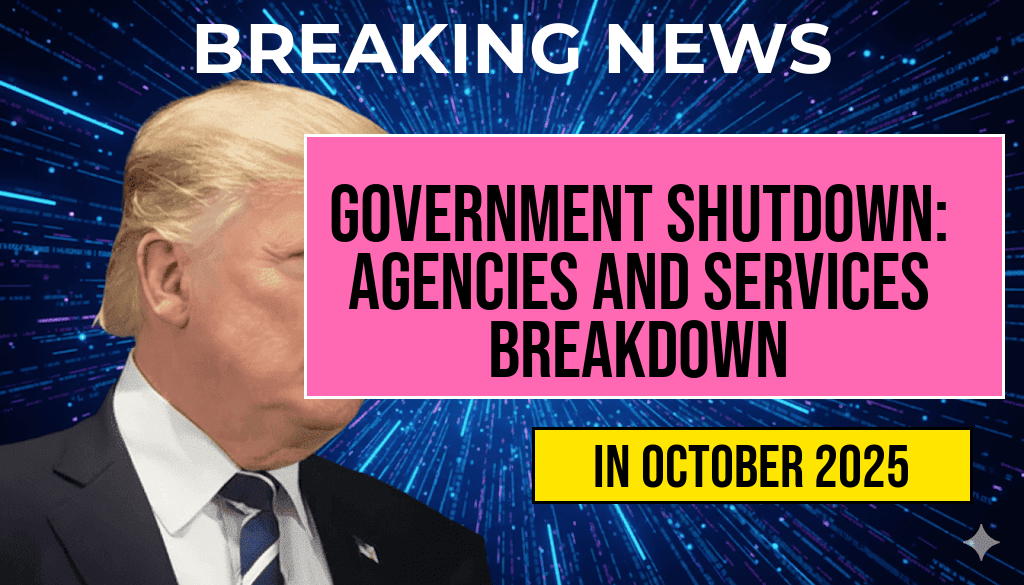The United States government has officially entered a shutdown following the failure of Congress to pass funding legislation by the midnight deadline. This development halts or restricts numerous federal operations, affecting millions of Americans who rely on government services daily. While some agencies will continue essential functions to ensure public safety and national security, many others will suspend non-essential activities, leading to widespread disruptions across various sectors. From Social Security payments to defense operations and airport security, the shutdown underscores the complex balance between government funding and service delivery. This article provides a detailed agency-by-agency breakdown of which services remain operational, which are curtailed, and the implications for the American populace.
Impact on Social Security and Medicare
Social Security benefits, a critical lifeline for millions of seniors and disabled individuals, are generally protected during a government shutdown. The Social Security Administration (SSA) is classified as an essential agency and will continue issuing payments. However, some services related to new claims processing, benefit adjustments, and customer service lines may experience delays or reduced hours. Similarly, Medicare and Medicaid programs will largely continue operating, but administrative functions including new enrollments and in-person assistance could face disruptions, complicating access for some beneficiaries.
Internal Revenue Service (IRS) and Tax Collection
The IRS is considered a non-essential agency during a shutdown, meaning most functions will cease until funding is restored. Tax processing, audits, and customer service operations will largely halt, causing delays in refunds and other services. However, some critical activities, such as processing electronic payments for existing tax debts, may continue. The IRS has indicated that taxpayers should expect delays in responses and refunds, with some online services remaining available for basic inquiries but with limited support.
Defense and National Security Operations
Military and Defense Agencies
Defense agencies are designated as essential, ensuring that active military personnel and critical operations continue unabated. The Department of Defense (DoD) maintains ongoing missions, including overseas operations, border security, and nuclear deterrence. However, non-essential activities such as training exercises, administrative staffing, and maintenance projects are scaled back, leading to delays and operational adjustments.
Intelligence and Homeland Security
Intelligence agencies and the Department of Homeland Security (DHS) operate under similar guidelines, maintaining core security functions like border enforcement, terrorism prevention, and disaster response. Yet, programs deemed non-essential, including certain public outreach and research initiatives, are suspended, potentially affecting long-term strategic planning.
Transportation Security Administration (TSA) and Airport Operations
The TSA is tasked with maintaining airport security and safeguarding the traveling public. Consequently, TSA agents remain on duty during a shutdown, ensuring that flights continue to operate safely. However, other functions within the Transportation Department, including certain airport infrastructure projects and non-essential administrative staff, face furloughs. Travelers should anticipate potential delays at security checkpoints due to staffing constraints and increased security measures.
Other Federal Agencies and Services
| Agency | Essential Services | Non-Essential Services Suspended |
|---|---|---|
| Federal Emergency Management Agency (FEMA) | Disaster response, preparedness coordination | Public outreach, grant programs |
| Department of Education | Student loan payments for existing loans | New loan processing, grant programs |
| Environmental Protection Agency (EPA) | Critical health and safety inspections | Research, enforcement activities |
| National Parks Service | Protection of historic sites, law enforcement | Visitor services, park maintenance |
Public Response and Economic Implications
The shutdown’s immediate effects ripple through the economy, with federal contractors, government employees, and beneficiaries facing uncertainty. Many federal workers are furloughed without pay, raising concerns over financial stability for affected families. Markets tend to react negatively to prolonged shutdowns, emphasizing the importance of timely legislative resolution. Small businesses reliant on federal contracts also experience delays, underscoring the broader economic toll of political impasses over budget negotiations.
Looking Ahead: Potential Resolutions
As lawmakers debate funding packages, the possibility of a short-term extension or a comprehensive budget deal remains on the table. Historically, government shutdowns have underscored the importance of bipartisan cooperation to ensure the continuity of essential services. For now, Americans are advised to stay informed through official government channels and prepare for potential disruptions in federal services until funding issues are resolved.
Frequently Asked Questions
What is a government shutdown and how does it affect federal agencies?
A government shutdown occurs when Congress fails to pass funding legislation, leading to the temporary closure of non-essential federal agencies. Essential services such as Social Security, IRS, Defense, and TSA continue to operate, though some operations may be limited.
Which government services are considered essential during a shutdown?
Services deemed essential include Social Security payments, IRS operations related to tax processing, Defense activities, and TSA security screenings. These services remain operational to ensure critical functions and public safety.
What services are non-essential during the shutdown?
Non-essential services typically include federal museums, national parks, certain administrative offices, and some grant programs. These agencies often suspend operations until funding is restored.
How does a government shutdown impact Social Security recipients?
During a government shutdown, Social Security benefits are generally still issued, as it is considered an essential service. However, some related services, such as in-person assistance, may experience delays.
Will the IRS continue processing tax returns during a shutdown?
During a government shutdown, IRS operations related to tax processing may be slowed or temporarily halted. However, certain critical functions, like processing refunds, often continue, depending on the duration of the shutdown.






